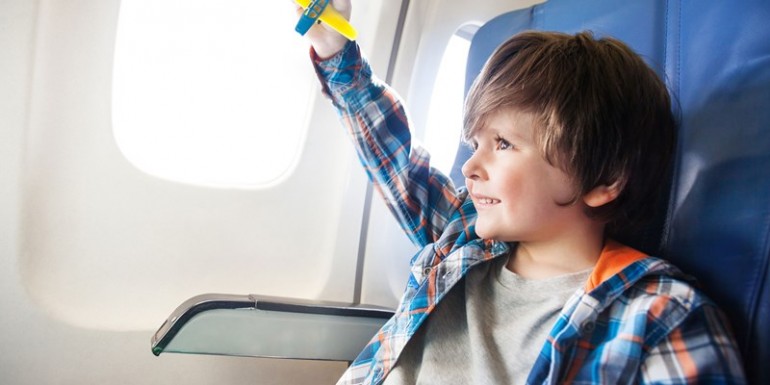Sponsored Listings:
“Family travel is definitely on the rise, especially to countries like South Africa and Namibia,” says Roberto Viviani, Business Manager for Europe and UK at Wilderness Safaris. “This is not only due the incredible variety of experiential family travel options available in each region, but also due to various global political and macro-economic factors at play, such as the great currency exchange rates.”
He adds that the variety of experiences and quality lodges, new hotels and seasoned guides have made Africa a must-see, relatively safe and adventurous experience with a range of options that can be tailor-made to suit the needs of all family travellers.
Christiaan Steyn, Marketing Manager at Drifters Adventours, says: “Multigenerational travellers are looking for a good product, at a good rate – as travelling with a family is a lot more expensive than travelling as a couple, or alone. Safety is always a priority and clients normally want to know how the product will be suitable for their children.”
Africa offers younger travellers the opportunity to be exposed to a unique variety of wildlife and biodiversity.
Grant Woodrow, Chief Operations Officer at Wilderness Safaris, says: “With the global trend of multi-generational travel on the rise, we believe that we have an important opportunity (and obligation) to not only expose our younger guests to the natural world, but to share it with them in a way that inspires them to love and respect it, and to ultimately become future custodians of our natural heritage.”
Steyn agrees: “On our tours, children enjoy the freedom of walking in the bush (supervised), experiencing a canoe safari, and engaging in other activities that would be impossible in their home country.”
“We have specially trained guides and ‘Bush Buddies’ whose sole purpose is to create exciting, experiential family safaris that educate, as well as entertain,” says Viviani. “We recently enhanced our unique Bush Buddy programme by launching an interactive children’s activity-packed booklet called ‘My Wilderness Journey’.”
The new booklet is included in the Bush Buddy bags that are handed out to all children, aged six to 12, on arrival. The bag also includes a bug viewer, crayons, pen, branded hat and eco-friendly wind-up torch. Teenage Packs include a mini-Maglite torch and branded cap, and are given to all teenagers between the ages of 13 and 17.
Viviani continues: “Children can also take part in various arts and crafts, often geared towards acquiring local traditional skills, giving them the opportunity to learn about the local culture and customs, while still having fun.”
Steyn says due to the nature of their tours, only children aged 12 and up are accommodated by the packages. He adds, however, that families wishing to include younger children can opt for a customised tour package.
“These tours are open to anyone and include places like Moremi, Savuti, Central Kalahari, and the Makgadikgadi salt pans, to name but a few.”
Kwandwe Private Game Reserve also offers family safaris that have an adventurous eco-focus, with activities tailored to different age groups, from ‘poo safaris’ for toddlers, to treasure hunts involving clues, compasses and landmarks for older kids.
In a statement, Kwandwe says: “Children receive a welcome gift on arrival which includes an Eco-nect Guide comprising animal checklists, themed games and activities, and a pledge to ‘live green’ (‘Junior’ for under sixes and ‘Senior’ for ages six and up), crayons/ pencils, and an age-appropriate gift.”
Other family activities include kite building, scavenger hunts (a reserve-wide scavenger hunt which is incorporated into a game drive by following a map and clues strategically placed around the reserve – all the various items collected around the reserve will then be used in an activity e.g. making fire with sticks, various kids’ art activities etc.) and treasure hunts out on the reserve (during a game drive, which will require some basic navigation using a sun-compass and major landscape features in order to find the treasure).
Families also have an opportunity to give back. Options include planting Spekboom (a type of thicket vegetation that is native to the Eastern Cape and prolific on the reserve, and one of the top-five carbon-storing vegetations on the planet. In this way they are encouraged to offset their carbon footprints.) and participating in Kwandwe’s ‘voluntourism’ activities through the reserve’s Ubunye Foundation, which works with communities living in and surrounding the reserve.
The statement continues: “Activities are tailored according to individual and family interests and skillsets. For young guests this includes assisting with gardening projects at the local Mgcamabele Community; participating in arts and craft activities; and toddlers are invited to join in playtime at the pre-school.
“Children are also welcome to participate in Kwandwe’s ‘Knit a Bit’ programme. The knitted squares are joined to make blankets and given to the Ubunye Foundation that distributes them to the needy communities surrounding Kwandwe.”
Other activities for children include ‘crumpet creatures’ (using a variety of coloured crumpet mixtures in squeezy bottles, the ranger and kids will create animal shaped crumpets); sand art, making moulds from Plaster of Paris, beading, Minnow’s fishing trip with a ranger, baking and pizza making with specially designed ‘Chefs in Training’ aprons and toques, DVDs and popcorn, eco educational board games (learning about recycling and how to care for our planet in a fun way) and African bedtime stories.
Source: tourismupdate.co.za










